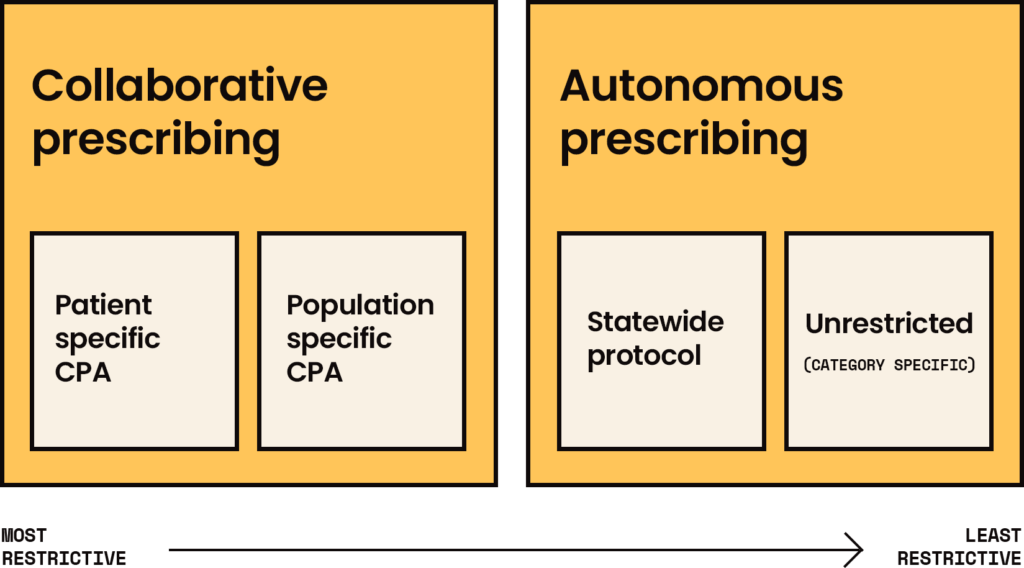Can pharmacists prescribe? Yes — sometimes.
- Pharmacists’ ability to prescribe depends on state law.
- State law ranges from allowing pharmacists to prescribe independently, to pharmacists having no prescriptive authority.
- In states where pharmacists’ cannot independently prescribe, they may prescribe under a supervising practitioner’s licence through a collaborative practice agreement (CPA).


